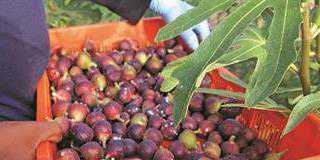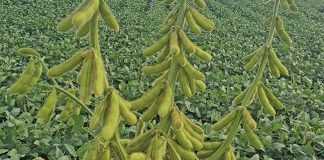The De Freitas family has been succesfully producing vegetables for three generations, with the last generation honoured with two top farmer awards.
Joao de Freitas started De Freitas Farms in Bedfordview, Johannesburg in the 1940s. It was later moved to its current site, a 150ha farm in Boksburg and taken over by his sons Johnny and Manny in the mid-1960s.
Manny retired 12 years ago, but Johnny and his sons Richard and John Edward carried on. John Edward was the Agri Gauteng Young Farmer of the Year in 2008 – now it’s Richard’s turn.
Part of the reason the brothers have been honoured is doubtless due to the significant increase in yield over the past few years thanks to a sound soil management programme. They grow cabbage, carrots, lettuce and beetroot in deep loam soils irrigated by two centre pivots and an extensive network of permanent spring clamp irrigation structures from 10 boreholes.
“We plant vegetables on a rotation basis and only one type of vegetable per year on any given block,” explains Richard. “For example, carrots are only planted once every three years on a specific block.”
This limits the development of soil pathogens, he adds.
Balanced soil
“Balanced soils are crucial for sustainable cash crop production,” says Richard. He attributes his family’s farming success to the Albrecht soil management system as advocated by John Fair in his fortnightly column in Farmer’s Weekly.
Part of the Albrecht system involves regularly sending soil samples to laboratories in the US and GPS technology is used for variable ratings to determine soil chemicals.
“The entire farm is now mapped. We devised a soil management programme for each block, containing detailed records of all the crops planted, planting dates, harvesting dates, variety and weed management.
“We’re always tweaking and fine-tuning our programmes to ensure optimum profitability.” The phosphate level is bulk corrected with MAP (mono-ammonium phosphate), and potassium with K2SO4 (potassium sulphate) using a GPSlinked spreader at the same time the liming is done.
Nitrogen is top dressed during the growing period, in the form of LAN (limestone ammonium nitrate). “This happens mostly in winter,” notes Richard. “The timing and frequency depends on the crop and the climatic conditions.”
Freshness
The vegetables are packed on the farm daily – 1 000 25kg-bags of cabbage each containing eight to 10 heads; 30t carrots in 10kg pockets; 500 boxes of lettuce (12 heads to a box); 2 000 bunches of beetroot; and 1 000 bunches of spinach.
“The majority of our produce is marketed through the Johannesburg Fresh Produce Market, but we also supply some wholesalers in our area, such as Green Valley and Veggieland,” says Richard.
“Everything harvested is packed and delivered on the same day. Some of our produce is on the shelf within hours at the nearby wholesalers,” he adds.
Challenges
“Our biggest challenge nowadays is the extreme weather we have to contend with,” says Richard. The effects of climate change are felt especially when it comes to rain. “It’s not so much the amount of rain, but the type of rain and rain pattern,” explains Richard.
“We don’t get the protracted, soft rain of the past anymore. Nowadays it’s mainly heavy thunderstorms that are devastating for baby vegetables. Although vegetable prices were good during the past year we’ve really been hit hard by the floods at the beginning of the year.
“We’re surrounded by urban areas and had to build retention dams and put in stormwater drains to manage run-off from these areas.” Being so close to the city has another disadvantage. The De Freitas property is guarded day and night because of theft. It’s not the vegetables that thieves go for, but anything else they can lay their hands on, such as metal and cables, explains Richard.
“We don’t live on the farm due to the lack of security,” he continues. “The farm isn’t fenced either, because as soon as we put fences up they’re stolen. We’re thinking about building a wall around the property to keep the criminals out.”
The future
Richard is optimistic about the future of vegetable production in South Africa. “The fact that vegetables can’t be imported, as well as the growing population of the country, mean that vegetable farmers will stay in business,” he says.
Imports aren’t an option because vegetables have a short shelf-life, are very “bulky” and relatively inexpensive. “For instance, a head of lettuce imported from the US will cost twice as much as the local product, because of the air freight,” says Richard.
“I do, however, foresee that we will have to manage our business more effectively in future because of the changing weather patterns, rising labour costs and the astronomically high electricity tariffs.
“The sad part is that these costs will, in the long run, be passed on to the consumer. On the other hand, the sharp increases in mutton and beef prices mean that the low-end consumers buy vegetables rather than meat.”
Contact Richard de Freitas on 082 854 6524, or email [email protected].













